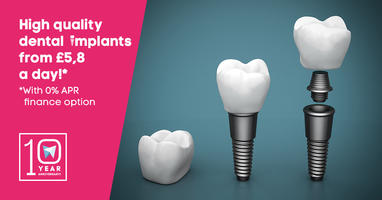A recent study by King’s College was done about people who suffered some sort of nerve damage after implantation. This is a very important study, and one that can be quoted as the beginning of a new era. It deals with how and why patients get nerve damage from dental implants, and how often this happens. This is important, given the increasing popularity of dental implants.

It turns out that around 1% of patients involved in dental implant treatments suffer some sort of nerve damage, and a certain, undisclosed percentage will either have to be reimplanted or may have to go to a nerve specialist in a clinic. There are roughly 10, 000 lower jaw implantations in the United Kingdom alone. The nerve damage affected patients ability to speak, eat, and kiss, and half of the affected patients mentioned being in constant pain, and some complained of losing feeling altogether. With nerve damage, very few patients can actually be helped once the damage is done, in this case, only 3 cases were caught in a timely manner and corrected, which amounts to about 10% of those in the study.
This is some serious business at first look.
How do we interpret this?
One in one hundred patients will have some sort of nerve damage, of which one in ten can be healed? That seems like some bad odds, when in reality, 1% puts dental implants well in the realm of routine surgeries, the safest of the safe, somewhere in the same category as tonsil removals and appendectomies.
The fact is that medical science, and dentistry is a part of that discipline, is not an exact science in the same way physics or chemistry is. Each person is different, may react differently to different stimulus, and as such cannot be thought of in the same way that hydrogen atoms can, not to mention that despite our awesome technological and scientific advances, we still know a lot less about the human body than we are willing to admit. This means that a certain percentage of that 1% simply cannot be evaded. The human body is such a complex, interconnected system that to know what a surgical procedure, ANY surgical procedure will do in advance is nearly impossible. This is why dentists and indeed all medical professionals make the patients sign consent forms. These forms are treated as necessary paperwork, when in reality they are very important for the patients, and if you read anything that you are not ready for, or that you are not comfortable with, ask your dentist. If you hear a bogus answer or something upsetting, it’s absolutely ok to leave.
This being said, the most important factor involved in outcome is the pre and postoperative care received by the patients. This is mostly dictated by the actual practice where the operation takes place, and by the dentist who is performing the surgery. Always make sure your dentist is qualified and registered by the ruling body of the profession they practice in. In the case of British dentists, this would be the GDC.
The most important thing to learn from studies such as this is how to ask the right questions. Permanent nerve damage could have been avoided in many of the referenced cases had proper post-operative care been received. Knowing that this is a minor but possible risk, finding a dental professional aware and able to deal effectively in the unlikely event of a problem can greatly increase your own peace of mind.

